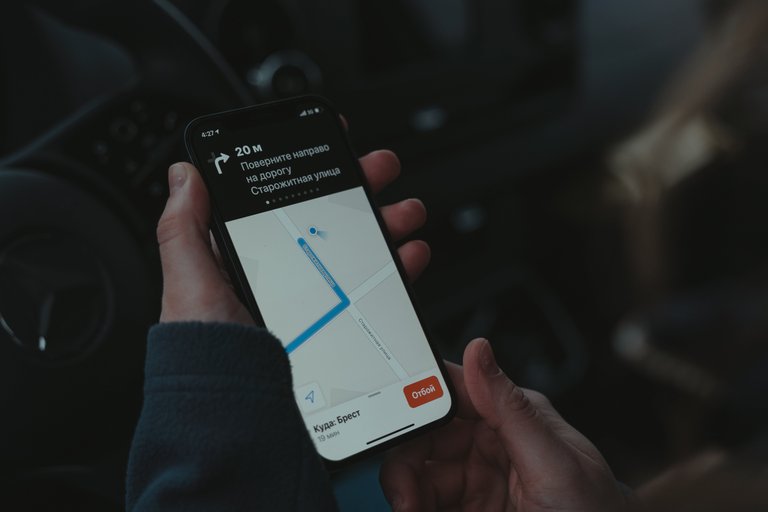Never Get Lost Again: Navigation 2.0 With AR Technology
Long gone are the days of closely looking at paper maps, hopelessly lost in a maze of roads and landmarks, wondering where we could've taken a wrong turn.
Those days are mostly behind us thanks to the invention of the Global Positioning System (GPS). This was developed in the 1970s by the US Department of Defense. Much like the internet, GPS initially served military purposes, providing pin-point accuracy for navigation and missile guidance.
Later on, however, its potential for civilian applications became evident and by the early 2000s, GPS had grown to become a very useful application commercially, on track to changing the way we navigate through the world.
With a simple handheld device or a smartphone app, we could find our way anywhere, be it in the compact places in urban areas or in the remote wilderness in rural areas.
I think it's no exaggeration when we say this invention has revolutionized how we explore the world and it has woven itself into the very fabric of our daily lives.
Interestingly, when I have to go visit a friend or relative and ask them to send me their location. Most give me a call and direct me to the place. So adoption seems to be lacking in certain parts of the world.
While some are catching on, others are pushing the boundaries of GPS navigation, taking things to the next level with AR technology.
Information Overlays And Navigation
Augmented reality (AR) has evolved quite a lot from a mere sci-fi concept to become a practical technology with a number of applications in our day to day lives.
AR is basically a tool that modifies our visual reality with digital information overlaid on the real world in real-time, creating a somewhat blended experience between the physical and digital world.
This ability to overlay digital information onto the real world opens up possibilities for how we find our way and interact with our surroundings.
For one, we could learn the history of every place we visit by pointing our smartphone or smart glass at buildings and instantly have historical photos, biographies of past residents, and perhaps, even timelines of key events appear on our screen or visual field.
A notable project working in this direction is Project Holo Tour, led by Microsoft. In a nutshell, this project explores ways to overlay holographic reconstructions of historical objects and buildings onto their original sites.
The vision is to walk through Pompeii and see its streets lined with virtual buildings and citizens. Or stand within the ruins of the ancient Colosseum and experience its grandeur during its prime.
Could there come a day when we can also see our hometown through the eyes of past generations, with AR overlays showcasing childhood photos/videos of our ancestors on the very streets they played on? Perhaps, future generations will get to experience that.
While AR can unveil the hidden stories of our surroundings, it can also guide us through the present moment with much clarity.
The main problem with traditional maps and directions is that they often fall short, leaving us confused and frustrated. The main culprit is dimensionality. These said maps are mostly two dimensional but we live and experience a third dimensional world.
With the help of AR technology, traditional maps could be upgraded into 3D map models that display more accurate and relevant information that is in tandem with reality and in finer detail. This means navigation can become more intuitive and effortless, making the whole process of moving from point A to point B a breeze.
Evolution Is Not Easy Or Simple
With AR navigation, the frustrations of maps and directions might become a distant memory. However, the path forward isn't without its own set of challenges.
Privacy concerns loom large, given the amount of data that'll have to be shared to make this experience happen. Another concern is ensuring equitable access for everyone, will it be a tool for the select few or the majority?
Personally, the latter isn't much of a concern because the development stage of AR tech feels more open. Unlike many previous technological advancements, this one seems accessible, with various open-source projects and communities actively inviting participation.
What I'm actually concerned about is the added complexities of altering our perception of reality, especially if AR navigation becomes woven into the fabric of our daily lives just like with GPS.
There's a high tendency that we will use it irresponsibly, potentially becoming another tool for puppet masters to keep us more distracted.
Despite the challenges, AR navigation is brimming with many possibilities, some of them quite inspiring in what it will enable us to do.
Thanks for reading!! Share your thoughts below on the comments.


Technology has gone further than we think, this is an amazing innovation.
Yes, it has. The way in which things are moving seems faster than our ordinary thinking process. On top of the speed, it is also moving in many directions :)
Thanks for stopping by :)
These maps have made life easier but with that it has also taken away some of our brain abilities. With paper maps we used brains to navigate now we just follow instructions. But yes, at the same time it cannot be denied that it is the most handy tool. There are pros and cons of it.
On a lighter note, my hubby gets lost with the GPS as well.....haha.....couple of times we have landed in to wrong routes
Yes, indeed. Generally, the pros seem to outweigh the cons. I think using less of our brain abilities is a bit of a loss on our part :(
Oh lol, that's very relatable, I've reach dead ends thanks to GPS navigation. It's accuracy can be low especially when changes have happened on the routes and it hasn't been fully updated yet on the software.
Thanks for stopping by :)
One of the things I loved doing but haven't done in a while is city breaks, to visit the local architecture (old and new) and experience the culture in other parts of the world. AR could become a helpful tool for that, although, frankly, I hope we won't "evolve" from being glued to our smartphones to being inseparable from an AR headset.
Those visits must've been educative and entertaining. I don't think there is much of those over here but AR could make the physical infrastructure for that unnecessary.
I think that evolution may happen for the collective but individually, we can make the decision not to be glued to AR headsets.
Thanks for stopping by :)
Absolutely! My family knows I don't carry the phone around with me, at least when I'm home. I check it from time to time, to see what notifications I missed.
My mum calls me a phone addict lol. This stems from the impression that she always sees me 'online'. I tend to take frequent breaks from using the phone and immerse myself in real world activities.
That's a great way to give our minds a break from the constant informational bombardment. I need to do that more often.
weird :D
I just have navigation in my head :P
@tipu curate
Upvoted 👌 (Mana: 44/54) Liquid rewards.
I wish that could be enough lol. Perhaps, upgrading the brain software :)
Thanks for the curation and for stopping by :)